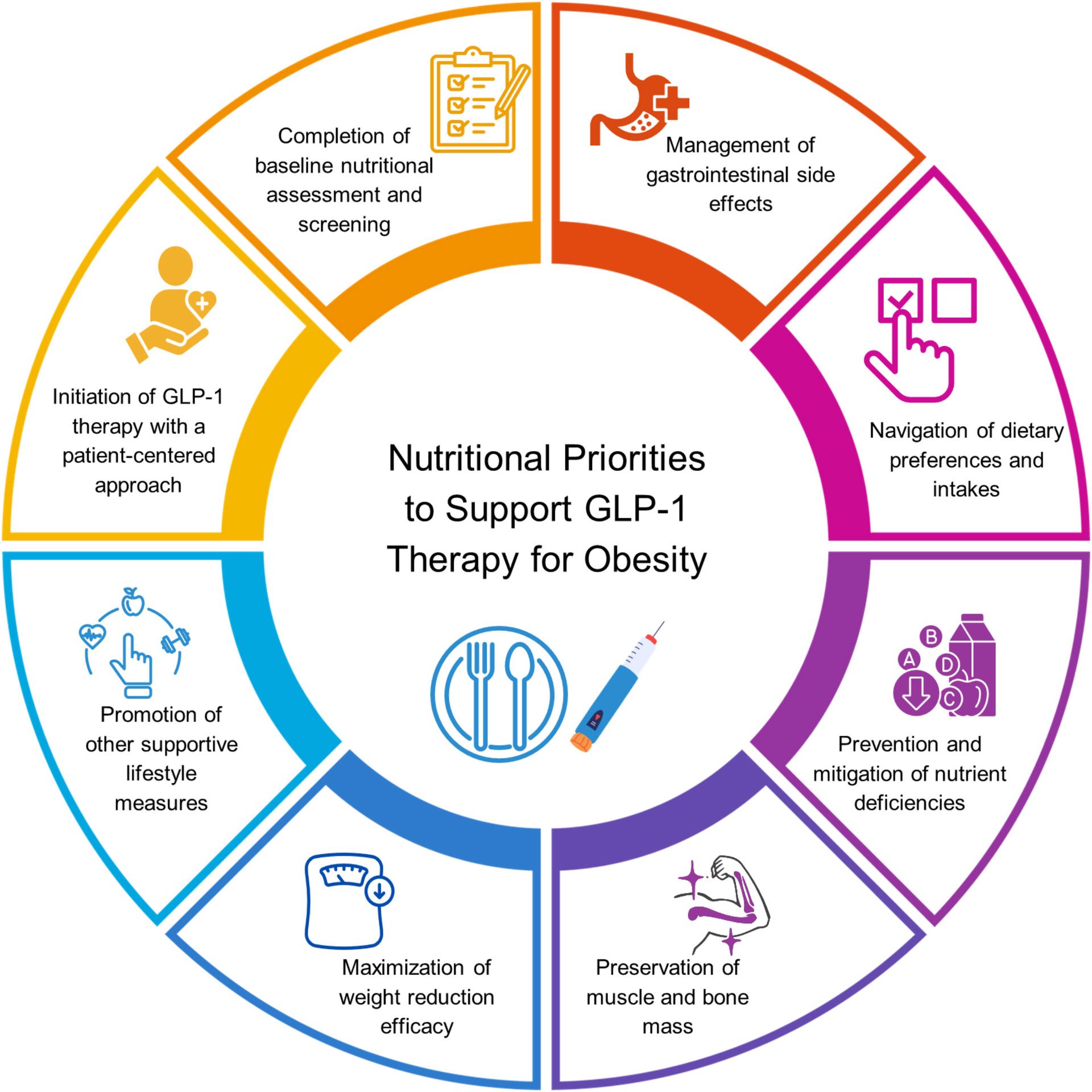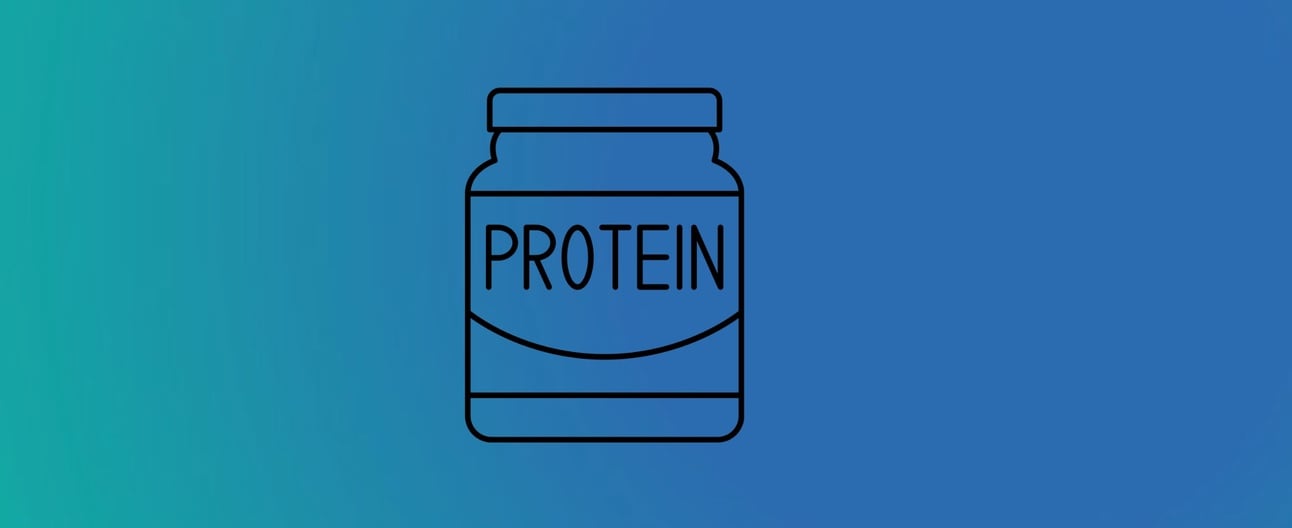- The GLP-1 Effect
- Posts
- The GLP-1 Nutrition Guide Your Doctor Will Follow
The GLP-1 Nutrition Guide Your Doctor Will Follow
First Official Nutrition Guidelines: Joint Advisory from 4 Leading Medical Organizations
Nutrition is a key factor in weight loss meds therapy success. Four major health organizations recently released the most comprehensive guide yet. It's the first official set of recommendations designed specifically for GLP-1 users - practical, science-backed, and written to keep you safe while maximizing results.
This isn't just another set of tips - it's the document your doctor will follow. It lays out clear, practical steps to make your treatment safer and more effective.
If you're on GLP-1s, it's a must-read.
Backed by America's Leading Health Authorities:
American College of Lifestyle Medicine. ACLM is a leading professional society focused on lifestyle medicine - using evidence-based lifestyle changes to prevent, treat, and often reverse chronic diseases like diabetes and cardiovascular conditions. With over 11,000 members worldwide, ACLM is known for rigorous education and certification programs.
American Society for Nutrition. Established in 1928, ASN is a premier scientific organization advancing nutrition science and its application. It is respected globally for its authoritative research, peer-reviewed journals, and policy guidance on nutrition and health.
The Obesity Society. TOS supports multidisciplinary research, professional training, and public policy to better understand and combat obesity. It is well-regarded for leadership in obesity science and education.
Obesity Medicine Association. OMA is dedicated to treating obesity as a chronic disease. It offers certification and education focused on evidence-based clinical care for obesity's complex management.
I'm attaching a link to ScienceDirect where you can read the full study or download the PDF with detailed data. As I mentioned earlier, it's a valuable and useful read.
Below, I've mapped out some key takeaways from the document for your convenience.
1. Nutrient Density Becomes Critical
With your appetite suppressed, you’re likely eating 16–39% fewer calories, so every bite needs to count nutritionally. This shifts your focus from quantity to quality.
Prioritize these foods: Fruits, vegetables, whole grains, legumes, lean proteins, nuts, and seeds. These provide maximum nutrition per calorie.
Minimize these: Refined carbohydrates, sugar-sweetened beverages, red and processed meats, and ultra-processed snacks. They don't provide enough nutrition for their caloric cost.
Supplement strategically: Consider vitamin D, B12, calcium, or a comprehensive multivitamin before deficiencies develop. Meeting all nutritional needs through food alone becomes challenging when eating significantly less.
Smoothies with fruits, vegetables, and unsweetened milk can provide concentrated nutrition when solid foods don't appeal to you.

2. Protein Requirements: More Than You Think
Standard protein recommendations (0.8g per kg of body weight) don't apply when you're losing weight rapidly. You need 1.2-1.6g per kg during active weight loss to preserve muscle mass.
Practical approach: Aim for 80-120g of protein daily. Eat protein first during meals when your appetite is strongest. Focus on options that pack more protein per bite: Greek yogurt, cottage cheese, eggs, fish, and lean poultry. Consider high-protein supplements if food aversion is significant.
If food aversions make hitting protein targets difficult, high-protein shakes and bars can bridge the gap. Don't go below 0.4-0.5g per kg-that leads to muscle loss. But don't exceed 2g per kg long-term either.
3. Treat Strength Training as a Second Prescription
Protein alone won't preserve your muscle mass. Without structured resistance training, you'll lose valuable lean tissue regardless of how much protein you eat.
Recent research shows GLP-1 plus exercise preserved bone density, while GLP-1 alone decreased it. The exercise group also lost more abdominal fat and had less inflammation.
Minimum requirements: Strength training 3 times per week, plus 150 minutes of moderate cardio weekly. Aerobic exercise alone doesn't prevent muscle loss during rapid weight reduction.
Consider bioelectrical impedance analysis (BIA) to monitor muscle mass, especially during periods of fast weight loss. It's practical for regular tracking in clinical settings.
Check out my post on what drives people to stay motivated to exercise on GLP-1.
4. Beyond Food: Sleep, Stress and Social Support
GLP-1 success depends on more than nutrition. Sleep quality, stress management, and social connections directly impact how well the medication works.
Sleep matters: Poor sleep increases insulin resistance and hunger, potentially counteracting GLP-1 benefits. Conversely, weight loss can improve sleep apnea symptoms, creating positive momentum.
Manage stress: Chronic stress elevates cortisol, interferes with insulin sensitivity, and triggers cravings for comfort foods. Consider cognitive-behavioral therapy or mindfulness approaches as part of your comprehensive plan.
Leverage social support: Strong social networks improve treatment adherence and outcomes. Group medical visits, peer support programs, or weight management groups can provide valuable accountability and motivation.
The most successful people I've observed work with their changed food preferences instead of fighting them. They accept that protein needs have shifted. They treat resistance training as medicine, not optional. They manage side effects proactively rather than reactively.
This isn't about following a diet while taking medication. It's about leveraging medication effects to build sustainable patterns that support long-term success.
Your brain's reward system is literally being rewired. The smart move is working with that process, not against it.
Stay informed, stay well
Lucas Veritas
 |
I’m a true GLP-1 believer. Tirzepatide (Mounjaro) user and patient advocate. I lost 100+ lbs, found my energy and gained a new mission: helping others succeed with healthy weight loss on GLP-1s |
About & Contact: Learn about my journey and get in touch
Must‑Reads: Check out the most popular posts
Resource Directory: Curated tools and links for GLP‑1 users
Disclaimer: This article reflects my personal experience and independent research. It is not a substitute for professional medical advice. Always consult a qualified healthcare provider before making decisions about your health or treatment plan.
Scientific References for this article:
Nutritional priorities to support GLP-1 therapy for obesity: a joint Advisory from ACLM, ASN, OMA, and TOS 2025
ScienceDirect – Joint Advisory Full Text
Exercise training enhances effects of GLP-1 receptor agonists on weight loss, body composition, and bone health 2022 – Cell Metabolism (MED)
Cell – Full Text
The role of dietary protein in weight loss with GLP-1 receptor agonist therapy: preservation of lean body mass 2023 – Frontiers in Endocrinology
Frontiers – Full Article
Nutrient intake and diet quality during pharmacologic treatment of obesity: Lessons from GLP-1 medications 2023 – American Journal of Clinical Nutrition
AJCN – Full Article
Impact of sleep and circadian health on obesity treatment response, including GLP-1 receptor agonists 2023 – Current Obesity Reports
PubMed – Abstract


Reply